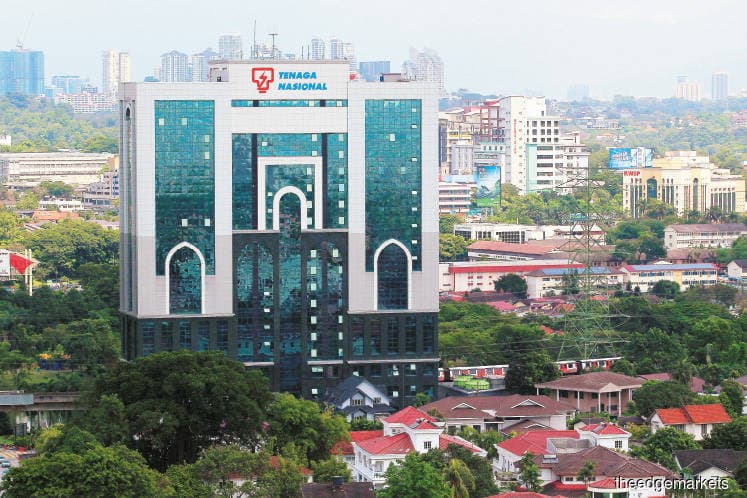
This article first appeared in The Edge Financial Daily on October 30, 2017
Tenaga Nasional Bhd
(Oct 27, RM14.96)
Maintain buy with a revised target price (TP) of RM15.80: Steady electricity demand. After experiencing electricity demand growth of 4%/1% in Peninsular Malaysia in financial year 2016 (FY16) and FY17, consumption is set to be stable going forward, growing in tandem with the relatively healthy economic expansion in Malaysia, which is projected at 4.7% to 5.3% in 2018. Energy reform remains on track.
The government is fully committed to the implementation of the imbalanced cost pass-through (ICPT), which has removed the burden of fuel cost volatility and ensures strong earnings clarity for Tenaga Nasional Bhd (TNB). More importantly, the gradual increase in piped gas prices has quashed concerns over the government’s commitment to address the gas subsidy rationalisation issue.
TNB’s revised dividend payout policy of 30% to 60% is the result of improved earnings clarity after the implementation of the ICPT. Where we differ. We project a 5% earnings per share (EPS) growth in FY18, compared with the consensus flattish EPS forecast.
We expect any fuel cost increase to be fully passed through and electricity demand to continue to grow healthily, albeit at a moderated pace.
A potential catalyst: TNB will be commissioning 3,000mw worth of new power plants over the next two years, translating into a 25% increase in its existing generation capacity. These more efficient power plants will allow TNB to gain a higher market share. Also, a successful tariff adjustment to reflect higher generation cost could remove any doubts that TNB will remain earnings-neutral in an environment of rising fuel cost.
Valuation: We have revised our discounted cash flow-derived TP to RM15.80 (weighted average cost of capital: 7.5%; terminal growth: 1.5%) after incorporating our earnings revision. TNB is trading at an undemanding valuation despite improving earnings visibility arising from the incentive-based regulatory framework.
Its dividend yield is attractive at about 4.5%. Key risks to our view: An operational breakdown. Unplanned outages may result in electricity shortages, which may necessitate expensive. — AllianceDBS Research, Oct 27